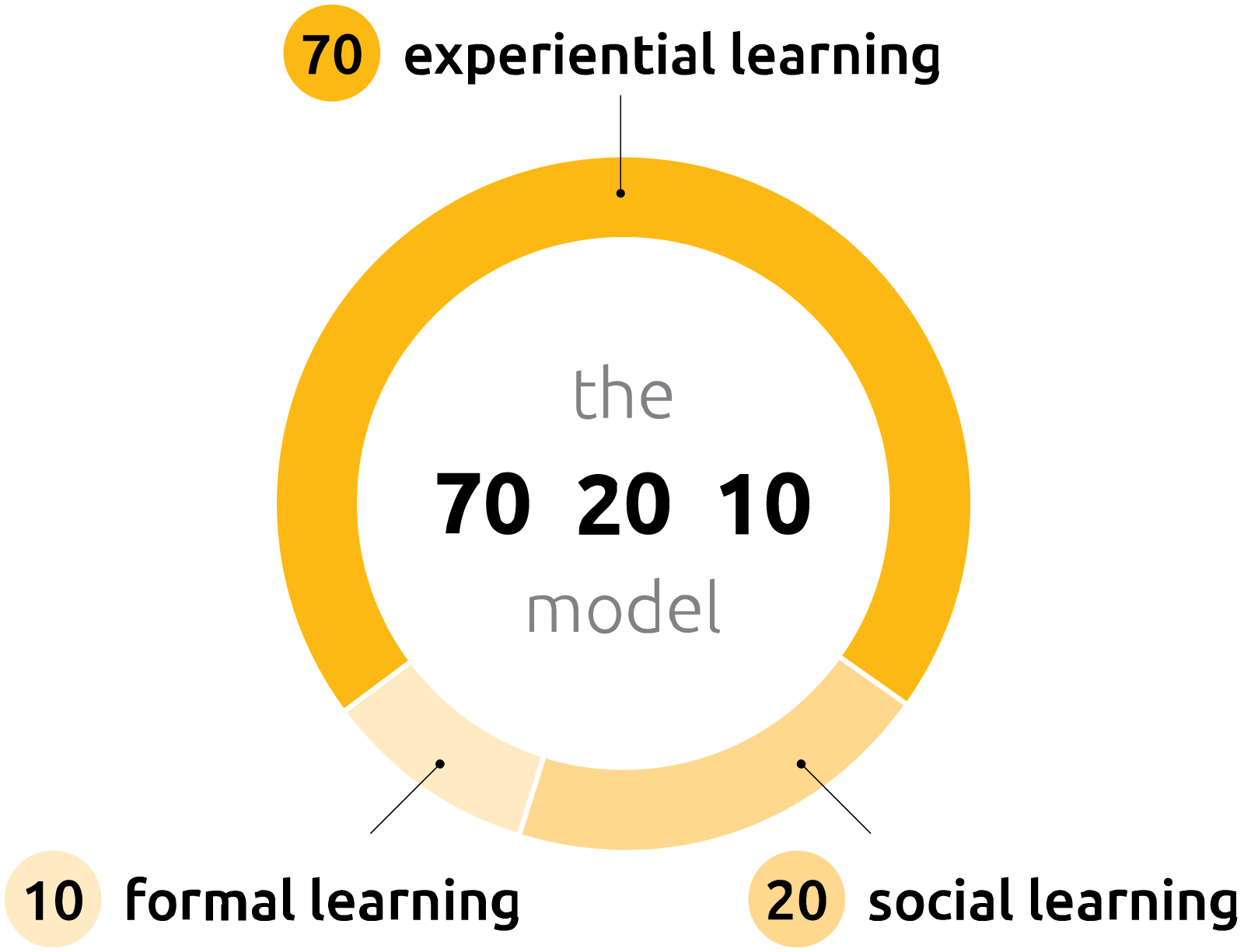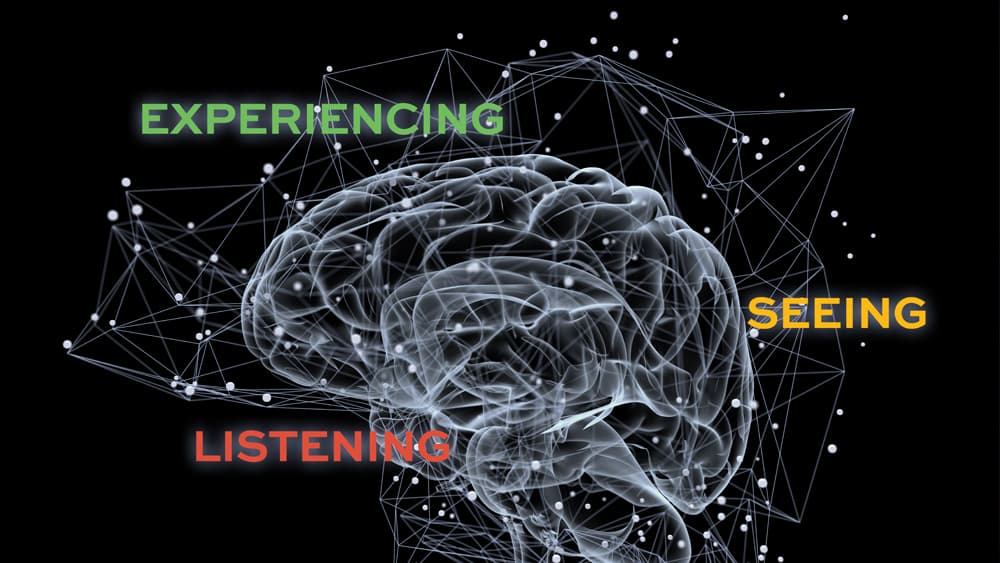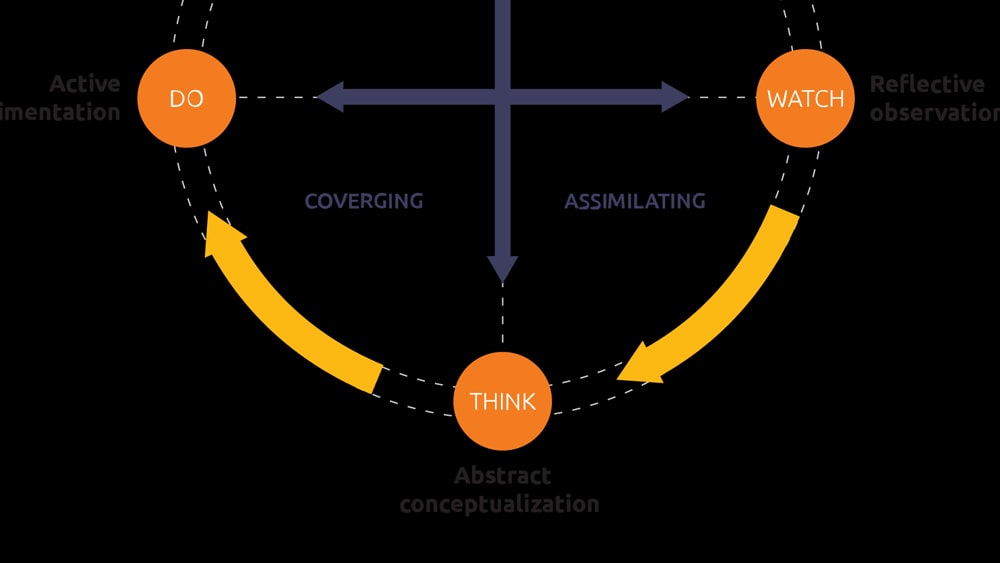In Learning & Development the 70 20 10 framework is often mentioned. It explains what the optimal sources of learning are. It’s main premise is that people obtain about 70 percent of their knowledge from experiences related to their job (on-the-job), 20 percent from interacting with co-workers and managers (near-the-job), and 10 percent from formal education in a structured ways (off-the-job).
The 70 20 10 model
The 70 20 10 model was created in the 1980s by three researchers who worked at the Center for Creative Leadership, in Greensboro, N.C. The three, Morgan McCall, Michael M. Lombardo and Robert A. Eichinger, were researching the key developmental experiences of successful managers.
The ratios 70, 20 and 10 are not set in stone, they merely tell us that most learning takes place on the job as opposed to in a formal learning setting. The model is helpful for organizations who want to yield a bigger benefit from their learning and development initiatives.
70 20 10: experiential learning
The creators of the 70 20 10 learning model claim that employees learn the most from job-related experiences. This is referred to as experiential learning. Employees complete daily tasks, have regular practice and resolve issues. This type of learning is informal and self-directed. Workers learn by doing, and that is how they become more knowledgeable. They can learn from mistakes, they need to overcome challenges, and they are encouraged to ask questions and feedback. As a result, workers refine the skills needed to do their jobs and get ready for future tasks at hand.
70 20 10: social learning
Employees learn from others by interacting with co-workers and managers. This part of the 70 20 10 model is called social learning. When workers complete tasks with others, they learn how to collaborate and solve issues together. They experience what it is like to work on a common goal. Mentoring and coaching are also very much a part of social learning, as are encouragement and feedback.
70 20 10: formal learning
The remaining 10 percent in the 70 20 10 model is called formal learning, and it is probably the most well-known to many people. It is learning delivered in a structured way. In the past this learning was taken care of mainly face-to-face and typically in a classroom-like setting. In recent years online learning has also very much become part of formal learning, supported by web-enabled delivery methods. Formal learning lends itself well for creating baseline knowledge for a wide variety of topics.

The 70 20 10 model at Inchainge
Learning with the business simulation games created by Inchainge combines experiential, social and formal learning altogether. This creates a complete and powerful learning experience. Below we explain how the different learnings are experienced in our online business simulation games.
The experiential learning part in the 70 20 10 rule is covered by immersing learners in a very lifelike virtual company in need of a turn-around. They become a management team member in the role of a Director or VP for a functional area, like – Finance, Purchasing, Operations, Supply Chain and Sales. It will feel like a first day on a new job for them: they need to take important decisions for their own functional area. They learn by doing and they learn from their mistakes as they go through several sessions and scenarios, in which the consequences of their decisions will become clear, whether good or bad.
The social learning part is included since the learners need to collaborate for the greater good of the team. If they want their virtual companies to thrive, learners will come to realize that first they need a common goal, or a shared strategy. With the strategy in mind, they need to align their decision-making in their own functional areas, so all areas contribute to the company’s success. At the same time learners will have to deal with trade-offs that exist within their own role, but especially across roles. And that again reinforces the need for alignment and collaboration.
Finally, the formal learning part is taken care of by instructor-led interventions or by means of e-learning. This part can be easily blended with the use of our business simulations.
Want to know more?
The 70 20 10 model demonstrates how effective experiential learning is in comparison to standard formal learning. At Inchainge we use these education principles in all of our business simulation games to create a deeper understanding of topics like supply chain management and sustainability. Do you want to learn how to revolutionize your university curriculum or incompany training? Sign up for one of our free webinars!
 Now you know
Now you know
Now you know that the 70 20 10 framework was created to demonstrate what is the most effective source of learning. The ratio of 70 20 10 means that people get 70 percent of their knowledge from experiential learning, or 'learning by doing'. 20 percent of learning is achieved by interacting with co-workers and managers, which is called social learning. The final 10 percent of knowledge is obtained from formal learning in a classroom-like setting.
You might want to learn more about

Business games
A high-performing value chain needs the collaboration of team members from across the organization. Tearing down silos and creating the right cross-functional mindset, however, can be a serious challenge. So, what do you need in order to achieve success? Ideally, you’d like your team to experiment with different scenarios wherein they learn to overcome various obstacles.

Experiential learning
Experiential learning is a powerful way of education that fosters numerous benefits. We truly believe that going through an experience, will result in a better and longer lasting understanding. What is experiential learning exactly? And why should it be implemented? In this article, Inchainge discusses everything you need to know about experiential learning.
Dive into our
knowledge base
Alignment
Blended learning
Experiential learning
Learning
Supply chain
Sustainability
- Sustainability
- Carbon footprint
- Circular Economy
- Does Green Governance drive the ride to a sustainable future?
- Everything You Need To Know About Eco-Efficiency
- Greenwashing: Everything you need to know
- Is it possible to measure the Triple Bottom Line?
- Sustainability v/s Circularity
- The 3Ps Series: People
- The 3Ps Series: Planet
- The 3Ps Series: Prosperity
- The Butterfly Diagram
- The Value Hill
- What are the 3Ps of Sustainability?
- What do we know about the Triple Bottom Line?

